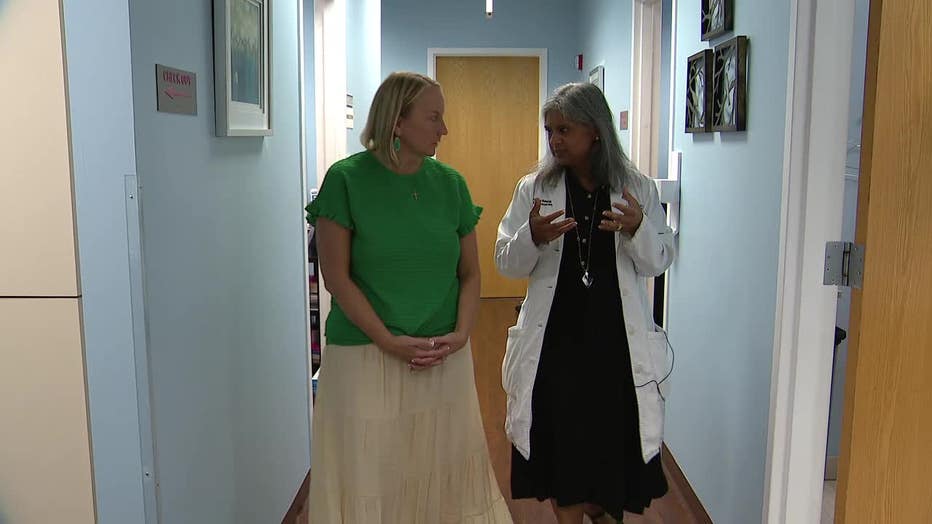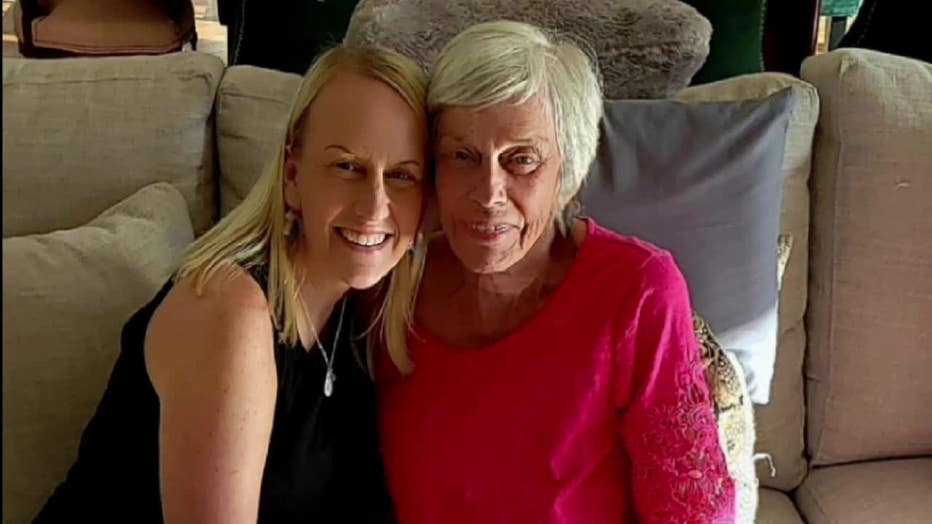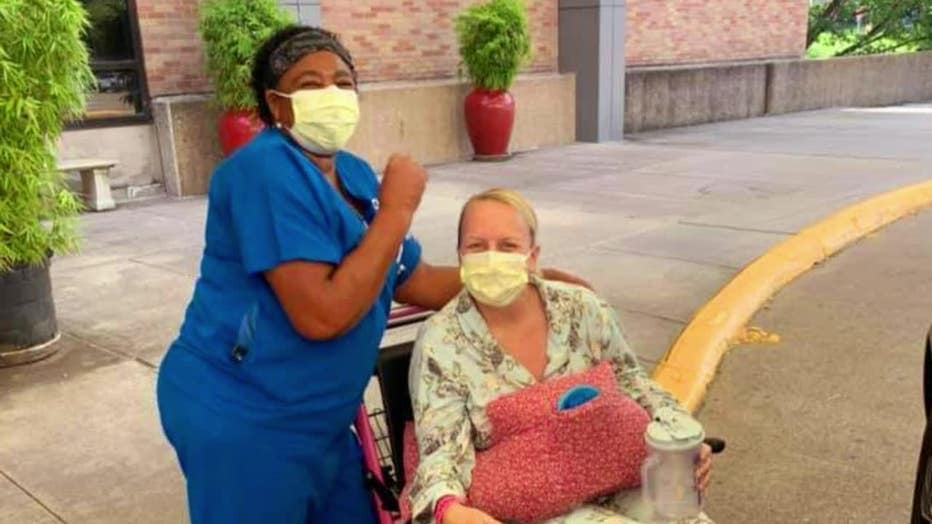Dallas woman credits genetic testing for detecting breast cancer early
NTX woman credits genetic testing for detecting cancer
Armed with the knowledge her mom passed down to her, Laura Heims wants to encourage other women to talk to their OBGYNs about genetic testing. It could be a lifesaver -- like it was for her. The early detection made other treatments like chemotherapy or radiation unnecessary.
DALLAS - A North Texas woman is on a mission to help raise awareness during Breast Cancer Awareness Month and beyond.
She learned that she was at high risk for certain types of breast cancer and took action. She believes that action is saving her life and the lives of others.

Laura Heims has never been more excited about a medical check-up. That's because if all goes as planned, she'll soon be done with her treatment for breast cancer.
Laura knew she was at increased risk of developing breast cancer. Her mom, Cecilia, had it when Laura was a child.
Genetic testing available years later revealed Cecilia also had what's called a CHEK2 gene mutation that increased her risk for certain types of cancer, including breast cancer.

Cecilia urged her daughter to get the genetic test, too.
"I did the test," Laura said. "He sent it off, and it turned out that I had the CEK2 mutation also."
That's when Laura enrolled in the High-Risk Mammography Program at Texas Health Presbyterian Dallas and met Oncology Program Manager Joyce Lee.

In between her yearly mammograms, the now 46-year-old Dallas native would get an MRI of her chest. It was that additional test that found cancer the size of a fingernail in her right breast.
"We were able to find it probably years before we would have found it on mammogram by doing the additional screening on her in between her regular screening mammograms," said Dr. Archana Ganaraj with Texas Health Presbyterian Dallas.
Laura says because her mother got breast cancer twice and the fact that Laura knew she had the genetic mutation, she opted to get a double mastectomy.

The early detection made other treatments like chemotherapy or radiation unnecessary.
"I'm just very blessed that I've never had any complications," she said.
Laura says the support of her husband, family and friends helped her through the darkest days.
Armed with the knowledge her mom passed down to her, Laura wants to encourage other women to talk to their OBGYNs about genetic testing. It could be a lifesaver.
Featured
Twin brothers battling same rare form of cancer share story of their inspiring fight
11-year-olds Alec and Aden O'Connor of Fort Worth were diagnosed with acute lymphoblastic leukemia, where bone marrow produces too many abnormal white blood cells. The boys are looking to let other young patients know they aren't alone in their fight.
"Without my MRI screening, my story could have been different," she said. "
Having the genetic mutation increases a person's risk of developing breast cancer by 15-20%.
Laura says getting the genetic test is simple. You provide a sample of saliva that is sent off to a lab and tested.
Laura is now in remission. She recently got even more good news: She can stop her cancer medication at the end of the year.


